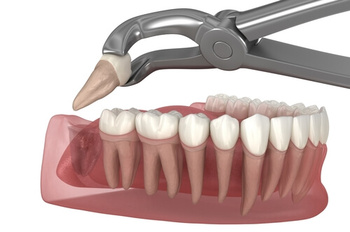
- Harris Dental Boutique
- wisdom teeth extraction, wisdom tooth impaction
- General Dentistry
Dealing with wisdom teeth can already be a challenging experience, and understanding the cost of removal helps in planning for the procedure. The price varies from person to person, making it important to have a clear idea of what to expect. Some extractions are more involved than others, which can influence the overall treatment process. Exploring the details of the procedure can help you feel more prepared and confident about your next steps. Knowing what to anticipate ensures you make an informed decision that supports both your comfort and long-term dental health.
What Exactly Are Wisdom Teeth?
Wisdom teeth are the final molars to develop, but they often create more problems than benefits. As the jaw evolves, there is often not enough space for these teeth to grow properly. Not all wisdom teeth cause complications, but when an impacted wisdom tooth remains trapped beneath the gums, it may lead to swelling, discomfort, or infection. Limited access to these molars makes cleaning difficult, raising the risk of tooth decay and gum inflammation. A partially erupted tooth can also trap bacteria, leading to irritation and infection in the surrounding gums.
To prevent complications, dentists may advise having wisdom teeth removed before they cause long-term issues. If the four wisdom teeth push against other teeth, they can create pressure and misalignment. Delaying teeth extractions can result in further discomfort, making future removal more complex. The decision to remove wisdom teeth is often based on symptoms like persistent soreness, swelling, or difficulty opening the mouth. Addressing wisdom teeth pain early ensures better oral health and prevents more serious dental concerns later on.

What Is the Cost of Wisdom Teeth Removal?
The starting cost for wisdom teeth removal in Australia is around $225 per tooth for simple extractions. More complex cases, including surgical procedures, often begin at $350 per tooth, with pricing influenced by the specific needs of the patient. Seeking advice from a dentist ensures a clear understanding of the expected costs.
What Contributes to the Cost of Wisdom Teeth Removal?
Planning for wisdom teeth extraction involves more than just scheduling an appointment. The overall expense can vary, and several key factors determine how much a person might pay for the procedure.
The Complexity of the Procedure Determines the Cost
Not every extraction follows the same process. In some cases, wisdom teeth emerge fully and can be removed with minimal effort. However, complex wisdom teeth removal is necessary when the teeth are impacted, growing sideways, or partially trapped under the gum. Additional steps, such as cutting into the gum or adjusting the surrounding bone, contribute to a higher cost. The more intricate the procedure, the more time and expertise it requires, directly affecting the total expense.
The Number of Wisdom Teeth Being Extracted
Some patients require the removal of a single tooth, while others may need all four extracted. The price of removing one wisdom tooth is lower compared to extracting multiple teeth in one session. While some clinics offer package deals for full removal, the overall treatment time and complexity increase with more extractions. Recovery time also differs depending on the number of teeth taken out, which may influence post-procedure care costs. Since each case is unique, the final cost depends on the extent of treatment required.
Anaesthesia and Sedation Influence the Total Expense
Discomfort management options vary depending on the difficulty of the extraction. A straightforward procedure may only require local anaesthesia, which is included in standard wisdom teeth removal prices. For more involved cases, sedation methods such as intravenous (IV) sedation or general anaesthesia may be necessary. The need for additional monitoring and specialised equipment raises the total cost.
The Skill and Experience of the Dental Professional
A dentist with extensive experience in extractions may charge higher fees, reflecting their expertise. Handling impacted or difficult cases requires advanced skills, which influence the total wisdom teeth removal cost. While it may be tempting to look for lower-cost options, a well-trained professional ensures a smoother experience and reduces potential complications. The right expertise leads to better treatment outcomes, which is a key consideration in the overall pricing.
Location and Clinic Fees Play a Role
The area where the procedure takes place affects pricing significantly. Clinics in urban centres often charge more due to higher operating expenses. In contrast, some regional clinics may offer affordable wisdom teeth removal, as their costs are generally lower. Factors such as rental prices, equipment costs, and staffing fees all contribute to the final amount charged.
Private Health Insurance Can Reduce Out-of-Pocket Expenses

Insurance coverage may help manage the financial aspect of the procedure. Depending on the policy, private health insurance may cover part or all of the extraction costs. Some plans include benefits for surgical removals, while others provide only limited assistance. It is important to confirm what is included before proceeding with the procedure to avoid unexpected expenses. Understanding coverage details can significantly reduce wisdom tooth extraction costs for eligible patients.
The total price of wisdom teeth removal is determined by various factors, including the complexity of the extraction, sedation choices, and clinic location. By understanding these aspects, patients can make informed decisions and plan accordingly.
How Is the Wisdom Teeth Removal Procedure Performed?
Preparing for wisdom teeth removal involves understanding each step of the process.
Examination and Treatment Planning
A thorough assessment is the first step before proceeding with the wisdom tooth removal procedure. A dentist evaluates the positioning of the teeth using X-rays to check for any complications. This allows for a customised approach, determining whether a simple extraction is possible or if a more complex method is required. If the teeth are impacted, an appropriate plan is developed to safely access and remove them. Once everything is reviewed, the next phase of the procedure begins.
Administration of Anaesthesia for Comfort
Ensuring comfort during the procedure is a priority, with sedation options selected based on the complexity of the extraction and individual preferences. A local anaesthetic is commonly used for straightforward cases, numbing the area while keeping the patient awake. For more involved extractions, sedation or general anaesthesia may be recommended. The selected method ensures the procedure is carried out with minimal discomfort.
Creating Access to the Wisdom Teeth
If the tooth is fully erupted, extraction can be done without making any incisions. When it is impacted or partially covered by gum tissue, a small opening is made to gain access. In some cases, a portion of bone may need to be carefully removed to allow for smoother extraction. This step is performed with precision to avoid unnecessary pressure on surrounding structures. Once the tooth is fully visible, the next phase begins.
Loosening and Extracting the Tooth
Removing the tooth requires careful handling to minimise disruption to surrounding tissues. When possible, the tooth is gently loosened before being lifted from the socket. For surgical wisdom tooth removal, breaking the tooth into smaller sections may be necessary to facilitate removal. This technique reduces strain on the jaw and speeds up the extraction process. Special instruments are used to ensure the procedure is performed efficiently and with minimal trauma.
Managing the Surgical Site After Extraction
With the tooth successfully removed, the focus shifts to ensuring proper closure of the area. Any remaining fragments or debris are cleared from the site before the gum is repositioned. If needed, stitches are placed to secure the gum tissue and support healing.
Monitoring and Post-Procedure Assessment
Before concluding the process, the patient is monitored to ensure there are no immediate concerns. For those who received sedation, extra time is given to allow for recovery before leaving the clinic. The dentist provides instructions on what to expect in the hours following the procedure. After confirming everything is in order, the patient is cleared to go home. The recovery phase then begins, focusing on healing and maintaining comfort after wisdom teeth surgery.
Each step in wisdom tooth extraction is carefully performed to ensure efficiency and patient comfort. Whether requiring a simple removal or a surgical extraction, the process is structured to achieve the best possible outcome.
What Aftercare Is Necessary Following Wisdom Teeth Removal?
Controlling Bleeding in the First Few Hours
Following the extraction, gauze is applied to the site to encourage clotting. Biting down softly on the pad helps control bleeding and supports recovery. If bleeding continues, replacing the gauze with a fresh one and keeping it in place for the recommended time can help. Spitting or rinsing too soon may disturb the clot, so these actions should be avoided in the first few hours. Wouldn’t it be better to let the area heal without interruption? Following these simple steps helps stabilise the treated site.
Managing Swelling for a More Comfortable Recovery
Swelling is expected after the procedure, often reaching its peak within the first two days. To minimise discomfort, an ice pack wrapped in a cloth can be applied to the outside of the face in short intervals. Keeping the head elevated while resting also prevents excess fluid buildup around the jaw. The level of swelling varies from person to person, but taking preventive measures can help reduce it sooner. A careful approach makes healing easier and allows for a faster return to daily routines.
Reducing Discomfort with Proper Care
Sensitivity in the treated area is normal as the body adjusts to the changes. Any prescribed medication should be taken exactly as instructed. Resting during the initial recovery phase allows the body to focus on healing. Avoiding unnecessary movement of the jaw, such as excessive speaking, can also prevent irritation. Why not give yourself the time to recover properly? A balanced approach to care ensures a smoother experience.
Protecting the Clot to Support Healing
Once a clot forms, keeping it intact is essential to prevent complications. Drinking through a straw, spitting forcefully, or excessive mouth rinsing can dislodge the clot and disrupt the recovery process. Gentle rinsing with lukewarm water may be introduced after the first day, but any strong pressure inside the mouth should be avoided. Any sudden disturbance can expose the area, delaying healing. By keeping the site undisturbed, the body can naturally progress through the recovery phase.

Maintaining Oral Hygiene with Extra Caution
Keeping the mouth clean helps prevent infection but should be done with care. Brushing near the extraction site must be approached gently to avoid irritation. Using a soft toothbrush and skipping any aggressive rinsing ensures the area remains undisturbed. Alcohol-based mouthwashes should be avoided, as they can cause dryness and discomfort. Following the recommended hygiene routine will help maintain oral health without interfering with the healing process.
Avoid Future Dental Issues with Timely Care
Knowing what to expect with wisdom tooth removal surgery costs can help you plan for treatment without unnecessary stress. The price varies based on factors such as tooth position, sedation type, and the complexity of the procedure. Addressing wisdom teeth concerns early can prevent more costly treatments in the future. Our team provides expert care to ensure a smooth experience while keeping costs reasonable. Delaying removal may lead to discomfort or complications, making early intervention the best choice. To learn more or schedule an appointment, please call us at 07 4158 5813 for professional advice and personalised treatment options.
Note: Any surgical or invasive procedure carries risks. Before proceeding, you should seek a second opinion from an appropriately qualified health practitioner.
References
https://www.webmd.com/oral-health/wisdom-teeth-adult
https://www.ncbi.nlm.nih.gov/books/NBK279590





